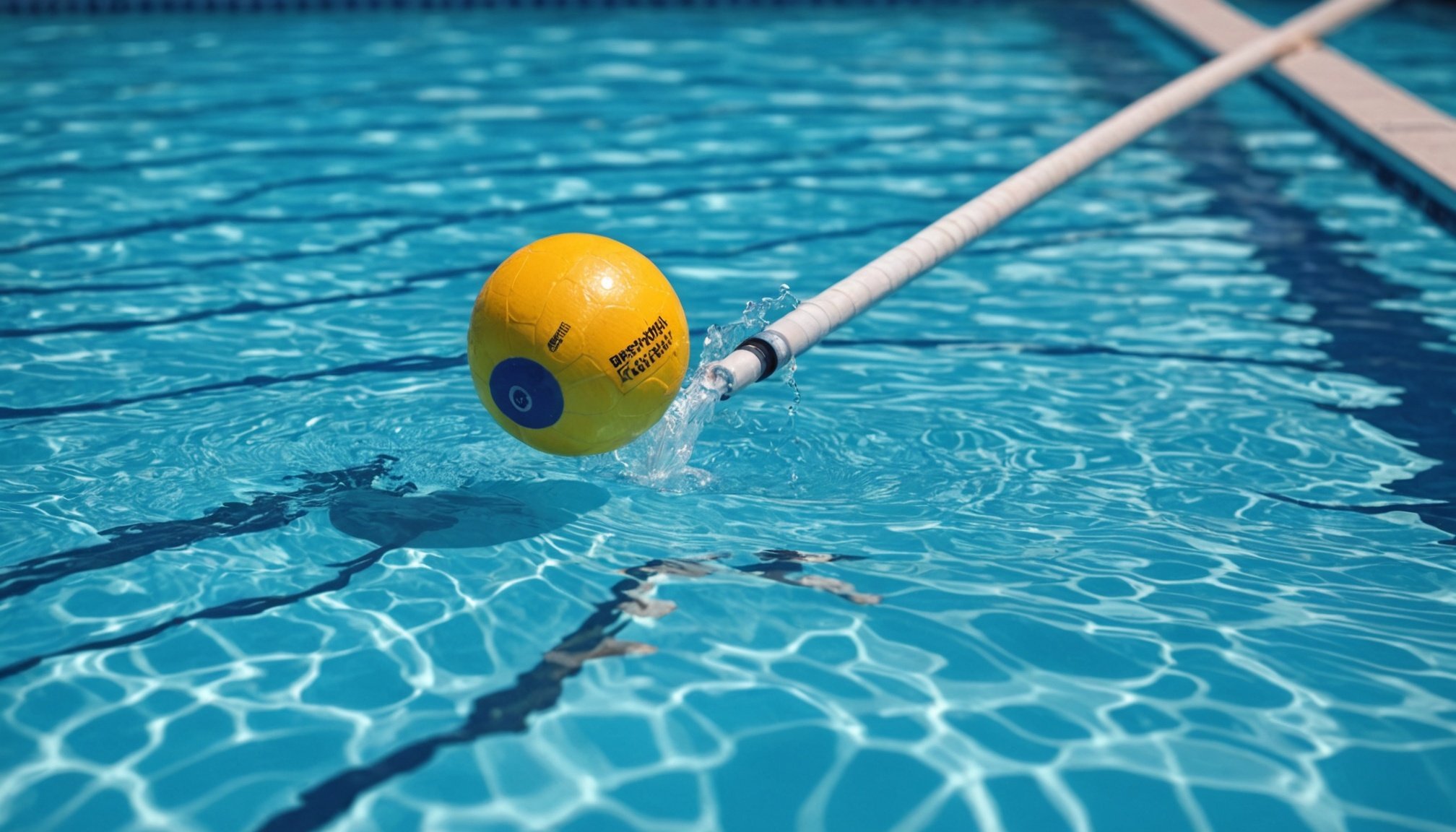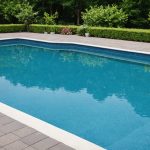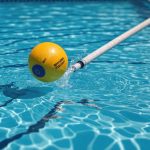Understanding Pool Water Chemistry
Proper pool chemistry is crucial for the longevity and safety of your swimming pool. Consistent pool maintenance ensures that the water remains clean and safe for swimmers, preventing unwanted algae growth and skin irritation.
Three main components in pool water chemistry are:
Also to see : Exploring the Impact of Advanced Pool Cleaning Technology in the UK: Benefits and Considerations
-
pH Level: This measures how acidic or basic the water is. A pH between 7.2 and 7.8 is optimal. High pH levels can cause scaling and cloudy water, while low levels can lead to corrosion of pool equipment.
-
Alkalinity: Acts as a buffer for pH changes. A balanced alkalinity, typically between 80-120 ppm, helps maintain stable pH levels. Unbalanced alkalinity can lead to rapid pH changes, complicating pool maintenance.
This might interest you : Exploring the Environmental Consequences of Saltwater Pool Systems in UK Homes
-
Calcium Hardness: Dictates the amount of calcium dissolved in your water. Ideal levels range from 200-400 ppm. Low levels can lead to etching of pool surfaces, while high levels cause scaling.
The effects of unbalanced water chemistry are multifaceted. Not only does it damage pool infrastructure, but it also influences swimmer comfort and health. Regular testing and adjustments in these key areas simplify pool maintenance, ensuring a well-functioning swimming environment.
Key Techniques for Chemical Balancing
Maintaining a pristine pool environment requires chemical balancing tailored to the specific conditions of your pool. By addressing water chemistry with the correct pool chemicals and water treatment processes, you can ensure safe and pleasant swimming conditions.
Testing Water Parameters
Routine testing of water parameters is essential. Equip yourself with a reliable testing kit to monitor pool chemicals. Accurate measurement of chemical levels will help in making informed decisions, ensuring that elements like chlorine and bromine are kept within recommended limits. This vigilant approach prevents problems before they occur.
Common Chemicals Used
In the UK, commonly used pool chemicals include chlorine and algaecides, which combat bacteria and algae growth. Another vital chemical is cyanuric acid that stabilises chlorine from sunlight degradation. Regular use of water clarifiers also improves visibility by aggregating particles for easier filtration.
Balancing pH and Alkalinity
Balancing pH and alkalinity is central to chemical balancing. Start by measuring the pH levels, aiming for a range of 7.2 to 7.6. Add pH increasers or decreasers to adjust accordingly. To regulate alkalinity, which acts as a buffer, incorporate sodium bicarbonate for increasing levels or muriatic acid to lower them as necessary. Regular adjustments foster a balanced environment, mitigating water treatment challenges.
Seasonal Pool Maintenance Routines
Seasonal maintenance is crucial for ensuring the longevity and cleanliness of your pool throughout the year. Adapting maintenance routines to each season’s unique characteristics allows for optimal year-round care.
In the UK, spring heralds the reopening of pools. Begin with a thorough cleaning and inspection of the pool structure and equipment. Check for winter damage and service the filtration system. Adjust chemical levels to prepare for increased use, as debris from spring blooms can affect balance.
Summer demands consistent vigilance due to higher usage and temperatures. Regularly skim the surface, monitor chemical levels, and clean filters to keep water inviting. Algae thrives in warm conditions, making it essential to maintain appropriate sanitiser levels consistently.
Autumn presents its own challenges with falling leaves and cooler temperatures. Reduce usage of algaecides as water cools, and increase frequency of leaf removal to prevent blockage and strain on filters.
Winter in the UK entails closing down, but regular inspections are still necessary. A proper cover protects against the harsh climate, but checking for pool integrity and ensuring covers are secure is vital.
In summary, adapting your pool care to accommodate seasonal changes ensures your pool remains in top condition, ultimately reducing long-term maintenance challenges.
Troubleshooting Common Pool Water Issues
When faced with pool issues, effective troubleshooting is key to maintaining a clean and safe swimming environment. Understanding common problem-solving strategies can help address frequent water quality issues.
Cloudy Water Solutions
Cloudy water is a prevalent pool issue that often puzzles pool owners. Identifying causes such as imbalanced pH levels, insufficient filtration, or chemical imbalances is essential. Regularly testing and adjusting pool chemistry, ensuring proper filtration, and using clarifiers are effective remedies.
Algae Growth Prevention
To prevent algae growth, consistent monitoring of water chemistry is crucial. Keep chlorine levels stable and brush pool surfaces weekly to remove potential algae spores. Methods to prevent and treat algae include shock treatments and algaecides, particularly designed for UK pools, ensuring they do not disrupt the ecosystem balance.
Managing Hard Water
Dealing with hard water involves recognizing its mineral content causes, like calcium buildup. Steps to address hard water problems involve using water softeners or sequestrants to minimise mineral deposits. Regularly cleaning surfaces ensures hard water stains remain manageable.
By adopting these problem-solving strategies, you ensure a healthier and more appealing pool, suited for regular use.
Recommended Tools and Products for Pool Care
Maintaining a pool in the UK requires specific tools tailored to local conditions. Effective pool tools and maintenance products ensure your pool remains clean and safe. Here’s a concise buying guide to help with your DIY pool maintenance.
Essential Tools for DIY Pool Maintenance
For an efficient cleaning routine, equip yourself with a sturdy pool skimmer, a vacuum cleaner suitable for your pool’s size, and a durable pool brush for scrubbing surfaces. A reliable water testing kit is crucial for regular chemical checks, ensuring balanced pH levels and sanitation.
Products Tailored for UK Conditions
The unpredictable UK weather creates unique challenges. Use algaecides formulated for cooler climates, as they effectively prevent algae blooms. Consider pool covers that provide protection not only from debris but also retain heat, which is vital during chilly evenings.
Tips for Choosing the Right Pool Care Supplies
- Quality vs. Cost: While cost-effective options exist, invest in high-quality tools for longevity and performance.
- Material Compatibility: Ensure products are compatible with your pool’s materials to avoid damage.
- User Reviews: Read reviews from other UK-based pool owners to gauge product effectiveness in similar conditions.
By selecting the right maintenance products, pool care becomes a simpler, more efficient task.











